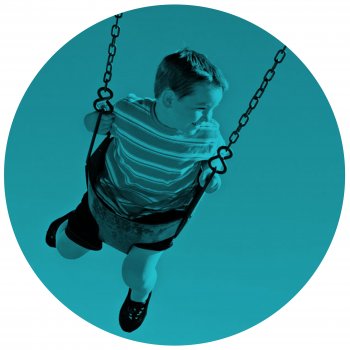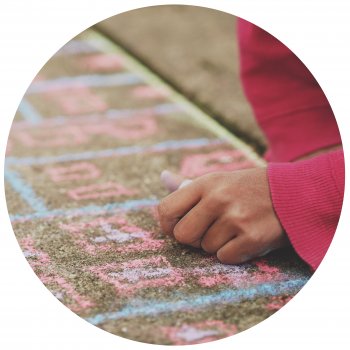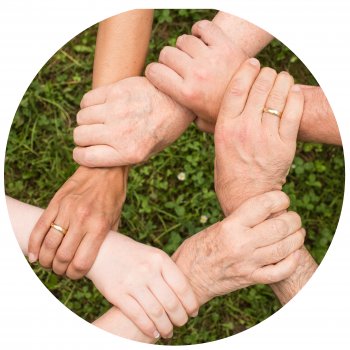 SIGNS AND SYMPTOMS
SIGNS AND SYMPTOMS

The signs and symptoms of child abuse are not always obvious, especially in cases of child sexual abuse. Often children have been threatened or confused by their abuser not to disclose the abuse. The guidelines listed below are general signs and symptoms and if you notice these in your child you should ask them if anything has happened.
New Fears
Abused children or teenagers may develop new fears of situations, places, or people. They may become excessively shy, anxious, scared or withdrawn.
Anger/Hostility
If children or teens are not allowed or able to express anger toward the abuser, they may take their anger out on others or against themselves.
Inappropriate Sexual Behaviors
Children may act out sexually. They may show an unusual interest in other people's or animal's genitals, or masturbate excessively. They may try to express affection in an inappropriate way, such as fondling private parts. Teens may participate in risky sexual behavior and make inappropriate advances in public.
Sleeping and Eating Problems
Children or teens may have problems sleeping, experience nightmares, or display sudden loss or gain in appetite. Children may regress in their development. A child might return to younger, more babyish behavior such as wetting the bed or thumb sucking.
Problems at School
Children or teens may have difficulty concentrating which can affect school performance. A change in grades or behavior at school is not uncommon.
Loss of Boundaries
Children or teens may be overly friendly and attached to total strangers, or they may tolerate abuse from other children. They may become excessively isolated and withdrawn, or may become overly obedient.
Self-Destructive Acts
Children or teens may feel such guilt and shame from the abuse that they may take their feelings out by hurting themselves. This may involve hitting or cutting themselves, using drugs and/or alcohol or even a suicide attempt. As teens that were abused as children mature, it is common for issues of abuse to resurface requiring additional or new services.
Lack of Personal Care or Hygiene
Abused and neglected children or teenagers may appear uncared for. They may present as consistently dirty and have severe body odor, or they may lack sufficient clothing for weather.
Risk-Taking Behaviors
Children or teenagers who are being abused may engage in high-risk activities such as using drugs or alcohol or carrying a weapon.
Unexplained Injuries
Visible signs physical abuse may include unexplained burns or bruises in the shape of objects. You may also hear unconvincing explanations of a child's injuries.
Returning to Earlier Behavior
Abused children may display behaviors shown at earlier ages, such as thumb-sucking, bed-wetting, fear of the dark or strangers. For some children, even loss of acquired language or memory problems may be an issue.
 PREVENTION
PREVENTION

Preventing Child Abuse
Child abuse is preventable. There are steps we can take as a community to better protect children from harm.
Listen to your child: Talking with your child and listening to what he or she has to say is the first step in preventing abuse.
Know those that have contact with your child: Most abusers are someone the child or family knows and trusts.
Minimize Opportunity: Avoid one adult/one child situations. Drop-in on situations where your child may be alone with another adult (even close family members).
Recognize the Signs: Don't expect obvious signs when a child is being abused. Signs are often there, but you have to know what to look for. Read more here.
Monitor your child’s Internet and cell phone use: Offenders often use the web and text messaging to lure them into physical contact.
Ask for help: Curb stressful situations by asking for help. Also, ask for help when children are left in your care.
React Responsibly: Be prepared to react responsibly if a child discloses abuse to you, or if you suspect or see that boundaries have been violated.
Educate your child: Teach your child about their body and the difference between appropriate and inappropriate touches. They should also know that inappropriate touches could occur with strangers, a family member, adult friend or an older youth. Teach your child that it is okay to tell another safe adult.
Educate yourself: Sign up to take a free Stewards of Children® training class. For more information click here.
Read this piece on how to keep kids safe online.
 COMMUNITY RESOURCES
COMMUNITY RESOURCES
 REPORTING
REPORTING
Texas State Law requires that ANYONE "having cause to believe that a child's physical, mental health or welfare has been or may be adversely affected by abuse or neglect" MUST report the cause immediately. Failure to report child abuse is a misdemeanor punishable by law. Texas Family Code, Chapter 261.
You can make a report by calling 1.800.252.5400
Or you can make a report online at www.txabusehotline.org
If you feel that a child is in immediate danger, call 911.




